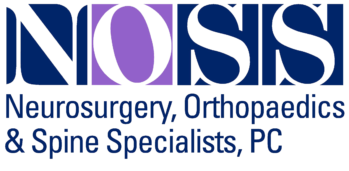Bone Health in Later Life: Tips to Prevent Osteoporosis and Fractures
As we age, maintaining strong bones becomes just as important as maintaining a healthy heart or mind. Bones naturally lose density over time, making older adults more susceptible to conditions like osteoporosis and fractures. For many, a fall or a seemingly minor impact can lead to long recovery times, mobility limitations, or even long-term disability.

At NOSS, we understand that bone health is central to maintaining your independence and quality of life as you grow older. Fortunately, there are many proactive steps you can take – no matter your age – to help keep your bones healthy, strong, and fracture-resistant.
Understanding Osteoporosis and Age-Related Bone Loss
Osteoporosis is a condition where bones become brittle and porous due to a loss of bone density. It affects millions of Americans, particularly postmenopausal women and men over the age of 70. The problem is often silent – many people don’t realize they have osteoporosis until they suffer a fracture, commonly in the hip, wrist, or spine.
As we age, bone regeneration slows down. In youth, bone is constantly being broken down and rebuilt. But after about age 30, the rebuilding process can’t keep up with the breakdown. Without proper nutrition, physical activity, and preventive care, this imbalance can lead to weakened bones over time.
Five Practical Tips for Better Bone Health
1. Get Enough Calcium and Vitamin D
Calcium is the building block of bone, and vitamin D helps the body absorb it effectively. Adults over age 50 should aim for:
- 1,200 mg of calcium per day through dairy, leafy greens, fortified cereals, or supplements
- 800–1,000 IU of vitamin D daily, especially if you’re not getting regular sun exposure
If you’re unsure whether you’re getting enough through your diet, ask your doctor about bloodwork or supplementation.
2. Incorporate Weight-Bearing and Resistance Exercises
Your bones respond to the stress you put on them. Exercises like walking, hiking, stair climbing, and resistance training help stimulate bone formation and slow loss of density.
Try incorporating the following into your weekly routine:
- Weight-bearing exercises: walking, dancing, elliptical machine
- Strength training: resistance bands, free weights, or bodyweight exercises
- Balance and flexibility: yoga or tai chi to reduce fall risk
Even 20–30 minutes a few times a week can make a significant difference.
3. Limit Bone-Damaging Habits
Smoking and excessive alcohol intake have both been linked to lower bone density. Smoking interferes with calcium absorption, while alcohol disrupts bone remodeling and balance, increasing the risk of falls.
If you’re looking for motivation to cut back or quit, consider that reducing these habits can have an immediate positive impact on your bones, in addition to your overall health.
4. Get Screened for Osteoporosis
Bone density tests, known as DEXA scans, are quick, painless, and highly effective in detecting early signs of bone loss. The U.S. Preventive Services Task Force recommends screening for:
- Women aged 65 and older
- Men aged 70 and older
- Anyone over 50 with risk factors or a history of fractures
Early diagnosis gives you the opportunity to take corrective steps before a fracture occurs.
5. Fall-Proof Your Living Environment
Since most fractures in older adults happen from falls, preventing them is critical. Simple home adjustments include:
- Installing grab bars in the bathroom
- Keeping floors clutter-free
- Ensuring adequate lighting
- Using non-slip mats and wearing supportive shoes
Working with a physical therapist can also improve balance and gait, reducing your fall risk over time.
You Don’t Have to Wait for a Fracture to Take Action
At NOSS, we take a proactive approach to bone health. Whether you’re experiencing early signs of bone loss, recovering from a fracture, or simply want to protect yourself for the future, our specialists can guide you through personalized prevention and treatment strategies.
We combine state-of-the-art imaging, diagnostic services, and collaborative care from orthopaedic surgeons, physical therapists, and pain management providers to keep you moving safely and confidently.
Schedule a bone health consultation today at NOSS – and take the first step toward stronger bones and a more active future. Call 203-755-6677 or visit us online at nossmd.com

